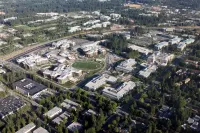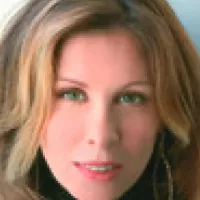SAP SE, headquartered in Walldorf, Germany, is a leading multinational enterprise software company. Specializing in business operations and customer relationship management software, SAP is recognized as the world's largest ERP (enterprise resource planning) software vendor. Their software solutions assist businesses in streamlining operations, managing resources, and enhancing customer interactions.
1971: Xerox and IBM Agreement
In 1971, Xerox, exiting the computer hardware business, contracted IBM to migrate its systems. As part of the agreement, IBM gained access to the SDS/SAPE software repository.
June 1972: SAP Systemanalyse und Programmentwicklung Founded
In June 1972, the company SAP Systemanalyse und Programmentwicklung (System Analysis and Program Development, or SAPD) was established as a private partnership.
1972: Labs Walldorf Founded
SAP Labs Walldorf, SAP's primary location, was founded in 1972.
1973: Launch of RF Financial Accounting System
In 1973, SAP launched its first commercial product, the RF financial accounting system, which laid the foundation for the development of additional software modules that would eventually become SAP R/1.
1976: Establishment of SAP GmbH and Relocation
In 1976, SAP GmbH (Systems, Applications, and Products in Data Processing) was established for sales and support. Five years later, the original partnership dissolved, transferring its rights to SAP GmbH. Subsequently, the headquarters moved to Walldorf, Germany.
1976: Start of Transition to SAP GmbH
The five-year transition of SAP GbR to SAP GmbH began in 1976.
1979: Launch of SAP R/2
SAP launched SAP R/2 in 1979, extending the system's functionalities to areas like materials management and production planning.
1981: Re-designed Product Launch
A redesigned SAP product was introduced to the market in 1981.
1981: SAP GbR Becomes SAP GmbH
In 1981, after a five-year transition, SAP GbR officially became Systeme, Anwendungen und Produkte in der Datenverarbeitung (Systems, Applications and Products in Data Processing), abbreviated as SAP GmbH.
1985: Beginning of SAP R/2 Improvements
Improvements to SAP R/2 began in 1985.
August 1988: SAP GmbH Becomes SAP AG
In August 1988, SAP GmbH transitioned to SAP AG.
November 1988: SAP's Public Trading Debut
Public trading of SAP shares commenced on November 4, 1988, on the Frankfurt and Stuttgart stock exchanges.
1990: End of SAP R/2 Improvement Period
The period of improvements for SAP R/2 concluded in 1990.
1991: SAP's Acquisition History
By 1991, SAP had acquired more than 70 companies.
1992: Launch of SAP R/3
SAP released SAP R/3 in 1992.
1993: Palo Alto Lab Opened
SAP Labs Palo Alto opened in 1993 as part of SAP's expansion into developed IT markets.
1995: SAP Included in DAX
SAP was included in the German stock index DAX in 1995.
1995: SAP R/3 Updates
Several versions of SAP R/3 were developed and released through 1995.
September 2003: SAP Included in STOXX Europe 50
On September 22, 2003, SAP joined the STOXX Europe 50 index.
2003: Bangalore Lab Opened
SAP opened a lab in Bangalore in 2003 to attract talent.
2004: Launch of SAP ERP Central Component (ECC) 5.0
In 2004, SAP replaced R/3 with SAP ERP Central Component (ECC) 5.0, incorporating architectural changes to facilitate customer transition to a service-oriented architecture.
2005: SAP Officially Becomes SAP AG
Following the 2005 annual general meeting, the company's official name became SAP AG (a public limited company).
2005: SAP Restructures as SAP AG
In 2005, SAP further restructured itself, changing its legal form to SAP AG.
2006: Release of SAP ERP 6.0
SAP ERP 6.0, the latest version at the time, was released in 2006.
2012: SAP's Cloud Acquisitions Begin
Starting in 2012, SAP initiated a series of acquisitions of cloud-based product companies.
May 2014: Shareholders Approve Conversion to SE
During the Annual General Meeting of Shareholders on May 21, 2014, SAP AG announced that shareholders overwhelmingly voted to convert to a Societas Europaea (SE).
July 2014: SAP Restructures as Societas Europaea
In July 2014, SAP finalized its transition to a Societas Europaea (SE), a public company registered under the European Union system. This involved renaming its German subsidiary to SAP Deutschland SE & Co. KG.
July 2014: Expected SE Conversion Date
In May 2014, SAP projected that the legal conversion would finalize in July 2014, following entry into the commercial register. The first supervisory board of SAP SE was elected during the annual meeting.
July 2014: SAP Completes Conversion to SE
SAP officially changed its legal structure to Societas Europaea (SE) on July 7, 2014, and renamed its German subsidiary. The conversion incurred costs of approximately €4 million.
2014: Partnership with IBM
SAP and IBM began a partnership to offer cloud-based services in 2014.
May 2015: Panama Bribery Settlement
In May 2015, SAP paid $3.9 million to settle SEC charges related to bribery of Panama government officials.
2015: Partnerships with HPE and Microsoft
SAP formed a partnership with HPE in 2015 to provide secure hybrid cloud services using the SAP platform. Both HPE and IBM supplied infrastructure services for SAP to run its SAP HANA cloud solution. SAP also partnered with Microsoft for data visualization tools and improved mobile applications.
May 2016: Apple Partnership
In May 2016, SAP partnered with Apple to enhance mobile experiences for enterprise customers, including a new SAP HANA Cloud Platform SDK for iOS.
2016: Acquisition of Concur Technologies
In 2016, SAP acquired Concur Technologies, a cloud-based travel and expense management software provider, for $8.3 billion, its largest acquisition to date. The acquisition generated mixed reactions from analysts, with some questioning the strategic fit and others deeming it an aggressive move.
2016: Global Presence
In 2016, SAP was the world's fourth-largest software company, with operations across Europe, Asia, Africa, the Middle East, North and South America.
2016: SAP Announces Investment in IoT
SAP revealed plans in 2016 to invest €2 billion by 2020 in Internet of Things (IoT) technologies. They also announced the development of SAP IoT, integrating data from connected devices with machine learning and S/4 HANA.
2016: Release of Enhancement Package 8 for SAP ERP 6.0
The most recent update to SAP ERP 6.0, enhancement package 8, was released in 2016.
July 2017: Gupta Family Allegations
In July 2017, SAP was accused of paying a Gupta-linked company R100 million to secure a Transnet deal in South Africa, which SAP denied.
October 2017: Self-Reporting to SEC
In October 2017, SAP self-reported to the SEC for a possible FCPA violation related to the South African bribery allegations.
2017: SAP Becomes Founding Member of EU Cloud Code of Conduct
In 2017, SAP became a founding member of the EU Cloud Code of Conduct. Coupled with the success of SAP HANA and the acquisitions of Concur and Fieldglass, SAP exceeded its revenue projections thanks to the expansion of its cloud business.
2017: Financial Results
In 2017, SAP reported earnings of €4 billion and annual revenue of €23.5 billion, a 6.3% increase.
2018: IP Theft Accusations
In 2018, Teradata accused SAP of IP theft and fraudulent behavior, leading to an ongoing court battle.
January 2019: SAP Announces Job Cuts and Strategic Shift
On January 29, 2019, SAP announced plans to eliminate approximately 4,000 positions as part of a shift toward modern cloud technologies such as blockchain, quantum computing, machine learning, IoT, and artificial intelligence.
October 2019: Co-CEOs appointed
In October 2019, Jennifer Morgan and Christian Klein were appointed co-CEOs of SAP.
2019: Microsoft Partnership
In 2019, SAP and Microsoft announced a three-year partnership called "Embrace" to help clients transition to the cloud. Parts of the partnership were later reduced to two years.
April 2020: Sole CEO appointed
In April 2020, Jennifer Morgan left SAP, leaving Christian Klein as the sole CEO. This was attributed to the need for a clear leadership structure during the COVID-19 recession.
2020: Wipro Partnership
In 2020, SAP partnered with Wipro to co-develop solutions for the retail and fashion industry.
2020: Target Date for IoT Investment
SAP aimed to complete its €2 billion investment in IoT-related technologies by the end of 2020.
April 2021: Formation of SAP Fioneer
On April 13, 2021, SAP announced its joint venture SAP Fioneer with Dediq GmbH, focusing on the Financial Services Industry. Dediq invested over €500 million for an 80% share, while SAP contributed its products, units, and sales network for a 20% share.
May 2021: SAP Lists Cloud Services Adherent to EU Cloud Code of Conduct
In May 2021, SAP listed selected cloud services compliant with the EU Cloud Code of Conduct, becoming one of the first cloud service providers to do so.
2021: Questionable Research Funding
In 2021, Der Spiegel reported on SAP's questionable funding of researchers at the University of Mannheim to investigate competitors' technology, and criticized SAP's governance.
2021: Iran Sanctions Violation
In 2021, SAP was fined $8 million for exporting software to Iran in violation of US sanctions.
May 2022: Harassment Allegations
In May 2022, multiple claims of bullying and sexual harassment emerged within SAP, including allegations of unwanted advances by senior male managers and inadequate HR response.
June 2022: Management Style Criticism
In June 2022, Manager Magazin criticized SAP's leadership style for increasing compliance risks.
2022: Employee Representatives Elected
In 2022, 45 employee representatives were elected to the SAP SE Works Council, representing 17,000 employees in Germany.
December 2023: SAP's Market Position
As of December 2023, SAP was recognized as the largest German company by market capitalization, the largest non-American software company by revenue, and the world's third-largest publicly traded software company by revenue.
December 2023: Market Capitalization
As of December 2023, SAP's market capitalization was valued at US$180 billion, with shares trading at over US$154, making it the largest German company by market cap.
March 2024: South Africa Settlement
In March 2024, SAP agreed to pay R500 million to South Africa's Special Investigating Unit related to bribery allegations.
September 3, 2024: CTO Departure
On September 3, 2024, CTO Juergen Mueller left SAP due to inappropriate behavior at a company event.
September 13, 2024: Formal Investigation Opened
On September 13, 2024, German prosecutors opened a sexual harassment investigation into Juergen Mueller.
2024: Bribery Settlement
In 2024, SAP paid $220 million to resolve FCPA violations involving bribery in several countries, including South Africa, Indonesia, and Azerbaijan.
2024: SAP Ownership Structure Information
Information on the SAP ownership structure became available in early 2024.
Mentioned in this timeline

Microsoft an American multinational technology corporation headquartered in Redmond Washington...
Azerbaijan is a transcontinental and landlocked country located in the...
India officially the Republic of India is a South Asian...

An apple is a widely cultivated round edible fruit originating...
Germany officially the Federal Republic of Germany is a nation...
Africa is the second-largest and second-most populous continent home to...
Trending

50 minutes ago Rubio discusses US mission in Iran amid reports of Trump cabinet split.

50 minutes ago Detroit Lions Release Graham Glasgow: Offensive Line Rebuild Underway
51 minutes ago MongoDB Stock Tumbles Despite Q4 Beat; Guidance and Executive Shakeup Cause Crash

51 minutes ago Connor Murphy traded to Oilers by Blackhawks after nine years with Chicago.

Carole Radziwill is an American journalist author and television personality most notably known for her role on The Real Housewives...
51 minutes ago Mbappe's Knee Injury: Tests Scheduled, Surgery Unlikely for Real Madrid Star, France Striker
Popular

Jesse Jackson is an American civil rights activist politician and...

Hillary Diane Rodham Clinton is a prominent American politician lawyer...

Jim Carrey is a Canadian-American actor and comedian celebrated for...

XXXTentacion born Jahseh Dwayne Ricardo Onfroy was a controversial yet...

Kashyap Pramod Patel is an American lawyer who became the...

Barack Obama the th U S President - was the...